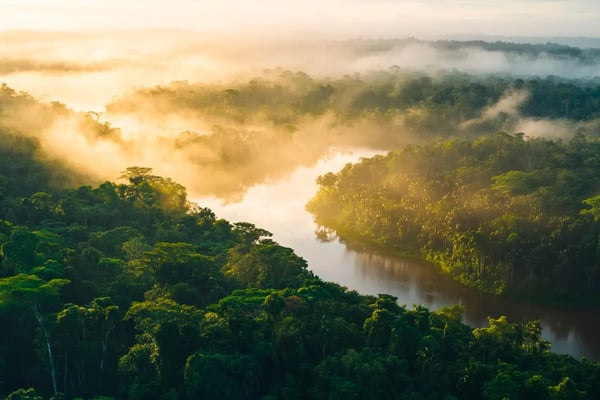Japan has launched a consultation to align its Joint Crediting Mechanism (JCM) with the carbon...
Nature Tech Ventures Thrive: VC Investments Surge in 2023
In 2023, there was a notable surge in venture capital (VC) investments for nature tech start-ups, marking an approximate 18% increase compared to the previous year. This growth was particularly pronounced in early-stage funding, especially within the categories of MRV and biodiversity credits.
According to an analysis based on Crunchbase data spanning 910 VC transactions over six years, VC funding for nature tech start-ups rose to $1.85 billion in 2023 from $1.56 billion in 2022. Since 2018, these companies have amassed a total of $9.31 billion in VC funding.
Xavier Lorphelin, managing partner and co-founder of Serena, a Paris-based venture capital firm with $750 million under management, along with Paul Moriou, a principal at the company, authored the report. They noted, "Despite the overall slowdown in venture capital in 2023, the nature tech market has seen strong momentum throughout 2023, with higher invested amounts (18%) ... and a very active early-stage segment (35%)."
Venture capital firms are increasingly investing in biodiversity initiatives, aligning with the ambitious Kunming-Montreal Global Biodiversity Framework (GBF) goal of mobilizing $200 billion annually by 2030 to combat biodiversity loss.
Lorphelin had previously contributed to the 2023 Nature Tech Report, which outlined major trends in nature-based solutions. The report identified four types of investors in the nature tech sector:
- Experienced climate tech or agri-tech investors
- Niche firms with small VC funds focusing on nature tech
- Family offices with a pre-existing interest in nature
- Real asset investors overseeing land management
Unlike climate tech, which primarily targets greenhouse gas emissions reduction and climate change mitigation, nature tech addresses a broader array of challenges including deforestation, habitat destruction, water pollution, soil degradation, and species loss.
While climate tech funding experienced a 30% decline in 2023 compared to 2022, nature tech deals increased by 27% during the same period, indicating a maturing market. The number of deals rose from 162 in 2022 to 205 in 2023.
Nature technologies are categorized into seven main segments, including food and agriculture, land and forest, ocean, water conservation and management, biodiversity and nature restoration, MRV and biodiversity credits, and green supply chain.
The report highlights shifts in funding distribution across these categories, with significant increases observed in water conservation and management, ocean, and land and forest sectors. Despite food and agriculture remaining the largest category, its share of VC funding decreased from 63% in 2022 to 28% in 2023, indicating a broader market interest.
Early-stage VC investments in nature tech grew substantially, reaching $656 million in 2023 from $488 million in 2022, driving much of the sector's funding growth. However, the biodiversity and nature restoration segment remains relatively under-invested.
Geographically, while the United States still leads in total investment capital, Europe and Asia are rapidly gaining traction. In 2023, Europe surpassed the US in terms of the number of deals, with Europe also being the most active region for early-stage VC funding.
Overall, the US accounted for $799 million (43%) of venture capital funding in nature tech start-ups in 2023, down from an average of 78% over the previous five years. Europe and Asia are emerging as significant players, collectively representing 40% of funding.






